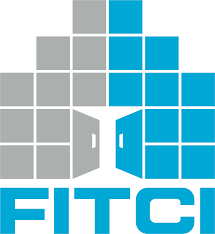
How to Get the Most from Your Biotech Job Search Efforts
The biotech job market has undergone rapid changes over the last few months. A candidate-driven market where job seekers received multiple offers and were scooped up fast by aggressive companies is losing steam.
The cause?
The emergence of a bear market teetering on recession, high inflation, war, continued supply chain issues, and a pandemic that just won’t end have pushed public and private biotechs to shed jobs. This has put thousands of biotech professionals back on the hunt for a new job, which is beginning to swing the job market pendulum back to an employer’s favor.
That’s not to say life sciences companies aren’t hiring—they certainly are. Some companies have hundreds of openings right now. Check out the BioBuzz job board, for example, to get just a sample of what’s out there in the BioHealth Capital Region and Greater Philadelphia. What these new bioscience market conditions mean is this: job seekers have more competition now and need to be smarter about how they go about searching for that next career opportunity.
Here are a few of our top tips for maximizing your job search in the talent marketplace.
Know Thyself
The pandemic has created a sea change in the way many people look at their careers. Disrupted lives, isolation, and a lack of any kind of normalcy pushed many to assess their lives and reprioritize what was really important. A large segment of the workforce began seeking happiness, fulfillment, and work-life balance instead of lofty titles and higher salaries, which led in part to the so-called Great Resignation.
RELATED: BioHealth Capital Region Early Career Development Programs Critical for Workforce Growth
“There’s been a shift. People have realized life is short. They understand that they want to work in a place that makes them happy. I advise job seekers to reflect and get a grasp of what makes them happy and then go out and pursue that vision,” stated Chris Frew, Chief Engagement Officer at Workforce Genetics, a leading life sciences talent search firm, and BioBuzz Media.

This emphasis on happiness and fulfillment beyond a prestigious title and large salary didn’t happen for everyone, but it’s a certainty that the pandemic spurred a great deal of reflection among workers and job seekers about how they want to live their lives. These decisions are purely individual, but the point is to know what you want before pursuing a new career in biotech.
What kind of culture fits you best? Do you prefer remote work or a hybrid environment? Does a company’s mission align with your own? What type of job and work situation will make you the happiest and most fulfilled? These are questions you need to ask so that your job search efforts can be targeted and yield the results you truly desire.
Understand What’s Possible
If you’re new to the world of biotech or just starting out in pursuit of a life sciences career you need to understand what’s possible. So many recent graduates, career changers, and even professionals in other fields hold a giant misconception about the biotech industry, which is that you need an MD, PhD, or some advanced scientific degree to even be able to knock on the door.
This is simply untrue. Biotech careers encompass a host of fields and disciplines; yes, scientists, PhDs, and MDs are part of the picture, but so are human resource professionals, lawyers, advocacy teams, facility management, and manufacturing pros. Not every biotech career path requires an advanced degree.
“The first thing job seekers new to biotech need to understand is that biotech is not some mystical thing only accessible to a few. There are a vast amount of important non-science related roles that play a valuable part in innovating to improve human health,” shared Frew.
There are so many opportunities for people with associate’s degrees, undergrad degrees, and even for professionals from other industries where skills translate to biotech, like skills from the food and beverage industries where SOPs are critical.
Biotech careers are not relegated to labs and clean rooms. Opportunities abound for those people that are curious, hard-working, and willing to learn.
Understand the Biotech Job Market
While the biotech job market has become more competitive in the last few months, there is still a ton of opportunity for entry level job seekers and even those who are making a career change. The biotech industry tends to navigate down markets well, but it’s not immune to downturns.
RELATED: How Life Science Job Seekers Use Personal Branding to Attract Top Employers
Still, most industry experts are optimistic about the future of biotech. Technological innovation, cell and gene therapies, infectious disease funding, and the fact that people live longer than ever before position biotech for growth over the long term.
Yes, this is a challenging time for the biotech sector and the job search has become much more competitive. Yet the future for the biotech industry remains bright and a promising career path for many.
Knowing the current state of the biotech market and talent environment heading into a job search will arm you with valuable information that can more effectively guide your biotech career search.
Identify and Utilize Available Job Seeker Resources
Job seeker resources can be very useful,l but you have to know where to look and how to take advantage of what each resource has to offer.

“Conducting an effective biotech job search is all about using the available resources to engage the region’s life sciences community,” stated Ezekiel Kelley, Director of Operations and Workforce Solutions at Workforce Genetics and the creator of the organization’s growing talent community.
“We sometimes think of tech as this static thing but it’s not. The most important thing is to be curious. When you engage this community through the right resources, you’ll find that people will be open to talking about their passions and what they do. They’ll talk all day and that’s free knowledge for you. It’s so worth it to take a small risk and engage people,” he added.
Career resources like the BioBuzz Newsletter, online talent marketplace, and websites like the Maryland Tech Council’s Biohub Maryland Pathways are great places to start to learn more about the market and to interact with fellow job seekers, industry professionals, and employers.
RELATED: Life Sciences Job Seekers: Land Your Dream Job with a Digital Networking Approach
“LinkedIn is also a great tool and is generally an underutilized resource,” shared Frew. “I don’t think job seekers really understand how to get the most out of this platform. A get asked by folks all the time about how they can build a great LinkedIn profile. Maximizing your effectiveness on LinkedIn is huge in today’s job market—it’s an invaluable resource for understanding the region’s life sciences ecosystem and then being able to use that knowledge to showcase your curiosity in an interview.”
Frew continued, “LinkedIn and these other job search resources are a great way to educate yourself about the market and specific companies. Being able to interview and say, ‘Hey I saw that you have a clinical trial ongoing’…or ‘I saw this piece of recent news’ is a great way to show your interest to an employer.”
“I’ve spoken to thousands of hiring managers and the #1 soft skill they want to see in a candidate is curiosity and a willingness to learn,” he added.
Know the Region’s Biotech Community is Tight-Knit
The biotech industry is global, but to play off of the political trope, all biotech is local. Within each biohub or sub sector in a region, everyone knows everyone. It’s like living in a very tiny, closely connected village.
This means that job seekers need to treat every engagement they have with this “small” community with respect and awareness.
“Treat interviews and engagement as a relationship building opportunity. Don’t fall into the trap of seeing an interview as a single transaction. You might not get a particular job today but you never know where you’ll be in two, five or ten years,” stated Frew.
“Be thoughtful, up front and communicative. And be transparent with employers. Mutual respect goes a long way in our biotech community, “ he added.
Engage Search Firms in the Right Way
Many job seekers don’t understand the difference between staffing agencies and a search firm. The first step to maximizing a relationship with talent professionals is knowing the difference between these two different business models. Generally speaking, a staffing agency hires for temporary or contract positions whereas a search firm like Workforce Genetics hires for permanent positions.
“Workforce Genetics is in the business of building relationships with hiring managers to find the best match between an opening and a candidate. We act as a partner in the hiring process. Unlike a staffing agency, our firm is about building and maintaining long term relationships with companies and hiring managers,” stated Frew.
“A lot of job seekers try to make themselves fit into a particular job and this puts a search firm at a disadvantage for finding the right match,” shared Kelley. “When you work with a search firm it’s critical to articulate your short and long term goals and what your skills and priorities are. Be as transparent as possible and be knowledgeable enough about your priorities so that you’re ready to compromise.”
Frew added, “When we understand one another, that’s where we can generate the best results for the candidate and the employer.”
An efficient, successful job search that results in the right fit with a role and an employer depends on a job seeker developing strong self-awareness, an understanding of the job market and the know-how to take advantage of available resources be that LinkedIn or engaging a search firm.
“A lot of job seeker dogma is simply dated. If you’re open to new opportunities, you show curiosity and your personal brand is authentic, you’ll build strong relationships and avoid falling into the transactional trap. That’s really what it’s all about. That’s the approach that will pay off with landing that dream job,” shared Kelley.
- About the Author
- Latest Posts
Steve brings nearly twenty years of experience in marketing and content creation to the WorkForce Genetics team. He loves writing engaging content and working with partners, companies, and individuals to share their unique stories and showcase their work. Steve holds a BA in English from Providence College and an MA in American Literature from Montclair State University. He lives in Frederick, Maryland with his wife, two sons, and the family dog.






